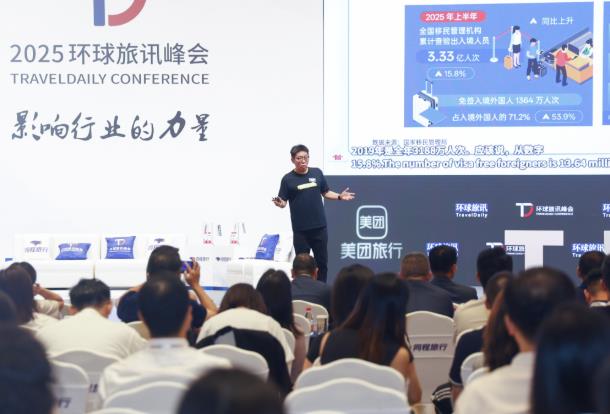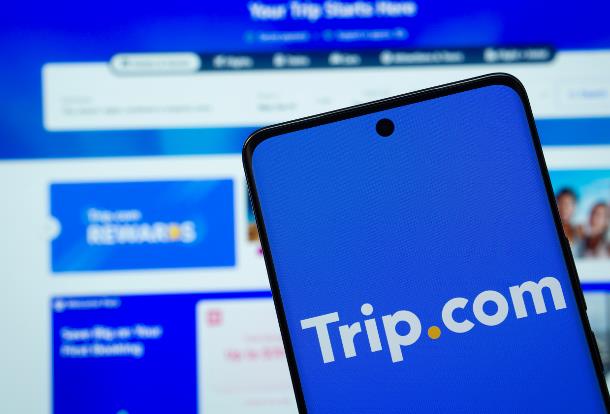ChinaTravelNews, Nicole Sy - The jam-packed first day at the 2016 TravelDaily Conference culminated with an executive roundtable many have been waiting for. The theme: How Will Business Travel Evolve amid The Boom of Technology Innovation and Sharing Economy, affects near everyone in the travel industry, sharing economy and business travelers and owners.
The panel is compromised of Steven Gong, Head of Operations, China at CITS American Express Global Business Travel; Liang Liu, Founder & CEO of ON THE WAY; Maximilian Waldmann, Founder & CEO of Conichi; David Long, Vice President of UCAR Inc.; and Tarry Wang, Co-founder & COO of Xiaozhu.com.

Executive roundtable on "Business travel in the sharing economy"
Kicking things off was moderator Jonathan Kao, Director of Strategic Initiatives, Greater China for BCD Travel. Kao asks the panel what their observations are on current business travel and consumption patterns.
Business travel is taking a more travel-centric approach, according to Waldmann of Conichi, a seamless hotel experience App. “There’s a change of corporate travel from old school managed travel that’s a better experience, more natural, and more seamless,” he says. “It comes back to bringing in the idea of why people want a sharing economy, its not an intrinsic price issue. It didn’t come from travel managers, it came from employees saying it’s such a better experience.”
Tarry Wang of home sharing website, Xiaozhu remarked how far business travel and the sharing economy had come to reach their current intersection. “Airbnb is continuing to account for more and more business travel in other companies,” he notes. “But for smaller companies like us, it’s a long thought process to consider using us for business travel. For Xiaozhu, it’s been a trajectory, though now with Chinese SMEs, sometimes business travelers stay together in a shared apartment with us.”
However, Steven Gong from the joint venture by CITS and American Express says demographics and the economic situation are still affecting consumption behaviors strongly. “Business travel represents the second largest expenditure for most companies, so they are the most strict about those expenditures,” he says. “But we are always thinking about the new millennials who are stepping on the stage and getting into the main screen. They are going to account for 70% of business and travelers.”
The millennials, according to Gong, see the integration of business and entertainment. “They are working while they are playing. They would like to have more freedom and more options,” he says. “They are also quite exposed to the sharing economy, and would like to make their own choices. They would like to use these new technologies. We have to deal with those changes, cost reductions and adapt to new dynamics.”
Pricing is always a constant concern for customers of the car rental market, reports David Long of UCAR. But government policy prevents them from pricing their products too competitively. “A lot of nationals are keen to cut the costs. In the US, Uber is cheaper but in China taxis are still cheap. Because of regulatory rules, the government asks us to be more expensive than the taxi so I have no way out,” he says. “Now we are also using the 30% off discount policy, but we are still limited by the government’s policy.”
Meanwhile for On The Way, their greatest goal is efficiency in the new market segmentation, shares Liang Liu. “For a well established TMC (travel management company) and new start-ups there are a lot of challenges,” he says. “As a local TMC , we first strive for efficiency. Then (providing) a service level. In terms of technologies the supporting services are already available for all TMCs.”
With all these new consumption patterns, Kao asks, which factors are the panel more concerned about? Price, safety, or personalization?
As published by the Chinese Business Travellers Report 2015 conducted by CITS American Express Global Business Travel, business travelers rank cost reduction first, then safety, and finally, satisfaction as their priorities. Gong also says the sharing economy is strengthening their foothold on business travel. “53% of travel customers are using the sharing economy, 47% are prudent on it, and 31% are considering using the sharing economy, so its important to collaborate with it,” he says. A strategic cooperation agreement between Amex and Airbnb is already in the works, according to him.
On the opposite end, Xiaozhu’s Wang says while the company addresses all those concerns; it is still a crowded marketplace. “Even if we see growing demand, and we can address everything because have the right financials and safety measures, until now our market share is only 10%,” he says. “But we have our own unique characteristics. We have to influence our corporations gradually.”
An issue, he says are often paperwork like invoices, or fapiao’s, the Chinese equivalent of an official receipt. Airbnb offers that, but some others don’t, which is what companies are looking for, Wang reports.
Waldmann doesn’t necessarily think it’s all about administrative issues. “Compliance, regulations, cost saving, those are all important and that haven’t changed the last couple years,” he says. “It’s always personalization, the door to door experience. Now big companies like Siemens are focusing on personalization.”
“Millenials are key drivers, for all the corporates who have not focused on personalization, its just a matter of time because they are losing out on the market, they are losing out on the race,” Waldmann says. “My experience when we first came to China was crazy to see how much more advanced personalization was in China than in Europe. The companies we were speaking to said, hey we can offer this in your service, put this in your App.”
However, the same issue of trust in China’s sharing economy is a concern the panel returns to. “We know the US the birthplace of the sharing economy. What about China? We have different personal habits and legal systems,” says Gong. “In China, in terms of trust, we still have a long way to go in terms of catching up with US. This issue requires collaborative research to study together how to adapt businesses and take care of consumer expectations. Legal framework in China is yet to measure up.”
His take is that while travelers are the ones living out the experience, travel companies still need to cater to businesses. “Remember,” he says. “Our customer isn’t the business travelers themselves. It’s their companies paying their bills.”




